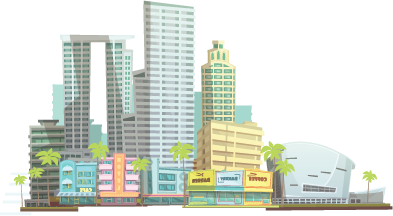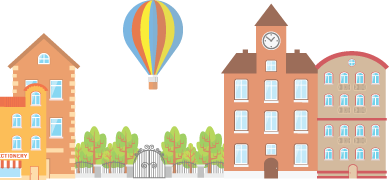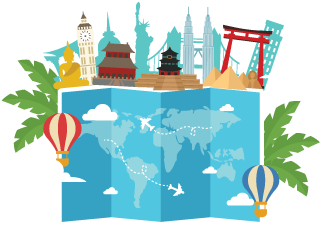-
Capital:
Berlin
-
Currency:
Euro (€
-
Time zone:
UTC+1 (Central European Time)
-
Driving side:
Right
-
Country calling code:
-
Language(s):
German
Germany: An Overview
Germany is one of the five founding members of the European Union, or EU, and the fourth most visited Schengen Area country. Tourists come to Germany for its distinctive combination of the traditional and the trendy, the innovative and the offbeat. While many know it for the Autobahn and the Oktoberfest, it’s also the place where the Berlin Wall once stood and century-old castles still stand. Germany is home to the world-famous Upside Down House in Rügen and the earliest known solar observatory, the Goseck Circle in Saxony-Anhalt. From the world-class art and vibrant nightlife of Berlin to the fairytale villages nestled in the Bavarian Alps, Germany is a mix of yesterday, today and tomorrow.
Travel Documents
Your passport must be valid for at least three months beyond your planned date of departure from the Schengen area. You must have at least one blank page for stamps in your passport. If your stay is beyond 90 days, you will need a Travel Visa. If you are a citizen of and ETIAS-eligible country, you will need an approved ETIAS to travel to Germany beginning in 2021. Learn more about the application process and sign up for ETIAS alerts to get the latest news.

Germany : An Overview
Clayallee 170
14191 Berlin
Federal Republic of Germany
Tel.: +49-30-8305-0
Web site: https://de.usembassy.gov

Emergency Germany Telephone Numbers
| Police: |
110
|
|---|---|
| Ambulance: |
112
|
| Fire and Rescue: |
112
|
| European Union's universal emergency number: |
(112 is the equivalent to 911 in the US)
|
Where to Go
-

The City
Berlin is at the top of the list for many travelers. It’s a cosmopolitan mecca, full of iconic monuments, attractions and festivals. Munich is home to celebrated museums, famous architecture and the birthplace of Oktoberfest. Cologne is known for its cathedrals, Frankfurt for its skyline and Hamburg for a page in music history that includes the Beatles.
-

The Countryside
Germany’s more rural areas are just as well-traveled as its urban counterparts, sprinkled with idyllic scenery and its own pastoral brand of history. The Romantic Road through Bavaria is a popular scenic route. The traditional starting point is Würzburg, a bit southeast of Frankfurt. Along this historic 261-mile route are many charming inns, medieval castles, folk art, folklore and incredible food.
-

The Mountains
The Bavarian Alps are storied with tales of quintessential Germany. Walking tours, skiing trips and castle visits rise to the top of many itineraries. One of the most famous castles is Neuschwanstein. Built by King Ludwig II in the 19th century to honor the composer Wagner. The cogwheel train and cable car trip to the Zugspitze Summit is also popular, allowing tourists to see the view of four countries from the “rooftop” of Germany.
-

Neighboring Countries
Germany shares borders with more countries than any other country in the EU: Austria, Denmark, Poland, Switzerland, France, Luxembourg, Belgium and the Netherlands.
Travels Tips
Electrical outlets and Adapters for US products
Germany uses Type C & F Plugs. You will need an adapter and maybe a transformer to use products made for the US electrical grid. Germany runs on a 230 (220) volts, 50 hertz AC current, while US runs on 120 (110) volts and a frequency of 60 Hz AC current. Many American products are able to run on 230 (220) volts, 50 hertz AC current. You need to check your electrical product to make sure it is labeled "dual voltage" before you plug it in, otherwise you may burn out the components rendering it useless. Learn more about the different European plugs and currents here.
Pickpockets and theft
Nearly all crimes suffered by tourists in Germany are nonviolent and avoidable, however you should be prepared for pickpockets. Europe’s transit systems are notorious for pickpockets!
- Being vigilant is your best friend when you are in high theft areas: train stations, trains, city buses, subways and open air shopping areas.
- Store important documents, money and phones in zippered or buttoned pockets, specialized travel day bags or a money belt.
- You should never leave your bags unattended! Make sure you can see them at all times. Better yet, you should keep in physical contact with your bags in public places.
Mobile Phones
First, be sure to check that your phone will work in Europe. The easiest way to find out is to check with your mobile phone service provider. You can also find out if your service provider offers international plans for Europe. We recommend signing up for an international plan if you plan on using your smart phone to connect to the internet or use the travel apps you may have installed on your phone. If you decide not to sign up for an international calling and data plan, costs can add up very quickly! Free WI-FI can be easy to access, but can be very slow or not available in the countryside.
Taxis, Buses and Subways
- Taxis - A good rule of thumb is use a prominent taxi service, one that has a company logo and a telephone number on the car. Avoid using taxis that just have a taxi light on the top of the car. Make sure the taxi driver is using the correct rate for the time of the day and day of the week. Nighttime and weekends have higher rates. When taking a taxi that has a set fare, for example to the airport, make sure you establish the price before you leave.
- Buses and subways - Most European cities have a great public transportation system. The cost of a transit pass for the entire time of your stay can equal the cost of one or two taxi rides. Check out the ticket options that are offered at subway stations, bus terminals and train stations. Get a transit map or download a transit app to your smart phone. Google maps have transit maps for most European cities.
Exchanging Currency
The most important thing you should understand is how exchange rates work. The euro usually has a higher exchange rate compared to the US dollar. So if you want to get 100 euros and the exchange rate is $1.10 for one euro, it will cost you 110 dollars to get 100 euros. There are many currency conversion apps you can down load to your smart phone to get up-to-date exchange rates.
Many people like to get euros through their bank before they leave for their trip. Check out what fees the bank charges for this service. Different banks have different fees. These fees can be expensive, so it pays to shop around.
When in Europe avoid using currency exchange companies or booths. These companies can charge up to 15% to 20% of the amount you are exchanging. European banks can also charge high fees to exchange money. You best bet is to use your ATM card with an established bank to get local currency.
Debit Cards and ATMs
First, make sure that your ATM card can be used internationally. Second, see what your bank charges for international ATM fees. Third, see what is the maximum amount you can withdraw each day. While there are fees associated with using an ATM card, they are usually much less than the fees charged by European banks and currency exchange companies. ATM fees are a flat fee not a percentage. So when you are withdrawing money using your ATM card, take out the maximum amount to reduce amount of ATM fees you will incur. Also it is a good idea to use bank ATMs instead of third party ATMs, which can charge higher fees.
Cash vs Credit Cards
Using local cash is key for the European tourist. Some businesses do not accept credit cards and many businesses charge a higher price when using a credit card due to the credit card fee they pay to the credit card company. Many businesses will take US dollars, but then you will need to figure out the exchange rate to ensure you are being charged the correct amount and receiving the correct change. Having smaller bills is better than large bills. Also remember to keep your cash secure in pickpocket proof pockets or a money belt.
US credit cards are widely accepted across Europe. Just in case, check with your bank to be sure your credit card will work in Europe. Before you leave on your trip, sign up for a credit card that has no foreign transaction fees. If you don’t, you may be in for a surprise when you get your credit card statement that contains lots of foreign transactions and currency conversion fees.
It makes sense to use a credit card for hotels, car rentals, Eurail pass, upscale businesses and restaurants. Limit the number of credit cards you take with you. Bring one back up credit card in addition to the main card you intend to use. Be sure to contact your credit card company and let them know the dates you will be traveling abroad.
Tipping
- Generally speaking, if someone in the service industry provides great service for you, a tip of a couple of euros is acceptable, but not required.
- Restaurants - 5% to 10%, with 10% being for over the top service. Be sure to check to see if service has already been included in the bill
- Taxis - round up to the nearest Euro, for example, if the fare is 5 euro give them 6
- Hotel porters - one euro for every bag
Medical Information
Here’s the good news: most of Europe, including Germany, has a universal health care system that takes care of everyone – including foreigners. If you need healthcare due to illness or injury while traveling in Germany, you won’t have to worry about getting treated. There may be out-of-pocket costs, but those are generally reimbursable depending on your health insurance.
Important Healthcare Hints
- Pack enough of any prescription medications for the length of your stay, in their labeled, original containers. It is smart to add a few more pills than you need, just in case you stay longer.
- Bring a small first aid kit with over-the-counter necessities.
- In an emergency call 112, that’s the “911” in Europe.
- If you have a non-emergency health issue, go to the nearest pharmacy first. European pharmacists can actually diagnose and prescribe medications for minor issues like sore throats, sinus and stomach issues and minor aches and pains.
- If the pharmacist can’t help you, go to a clinic. They’re much like our stateside urgent care clinics, and providers can order any tests you might need like x-rays.
- Ask for a House Call. Your hotel will most likely be able to have a physician come to your room if need be.
- Most embassies and consulates have lists of physicians and hospitals in major cities. Go on the U.S. Embassy’s site, choose your destination and look under U.S. Citizens Services section.

